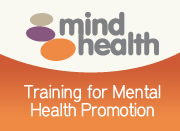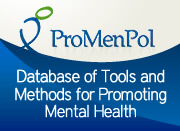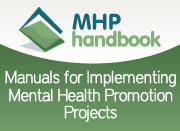Tools
- Utilities:
- Print this page
- Send this page
- Font size:
- Increase font size
- Decrease font size
European Alliance Against Depression
20/10/2008 - Submitted by: Argyro Kazaki
The EAAD project and its objectivesNational action programmes targeting to improve the situation of persons suffering from depression and being at risk to die by suicide are urgently needed. The “European Alliance Against Depression (EAAD)” is committed to the care of depressed patients and prevention of suicidality in Europe. This aim is being realised by implementing community-based intervention programmes on four different levels. The basic concept of the 4-level approach is based on the experiences made within the “Nuremberg Alliance Against Depression”, a study that has recently been conducted in the framework of the “German Research Network on Depression and Suicidality” (funded by the German Federal Ministry of Education and Research; for further information see Hegerl et al. 2006).
The 4-level approach
Within EAAD community-based intervention programmes are being implemented in 17 European regions. The intervention will take place on different levels of the health care system at the same time in order to establish synergy effects. The following measures are to be taken:
Co-operation with general practitioners and paediatricians
GPs and paediatricians are invited to educational workshops on how to recognise and treat depression and explore suicidality in the primary care setting. Information material (e.g. video tapes) are distributed that can be handed out to patients. Via a hotline GPs and paediatricians can consult a specialist concerning the treatment of individual cases of depression in their practice. The famous “Gotland Study” (Rutz et al. 1989, 1992) suggests that education of GPs may contribute to a reduction of suicidality.
Public Awareness Campaign and co-operation with local media
The broad public will be addressed by large-scaled public awareness campaigns including posters, cinema spots, information leaflets, brochures, public events and internet homepages. The aim is to improve the knowledge about adequate treatments of depression and to reduce the stigmatisation of the topic “depression” and the affected individuals. A close co-operation with the media takes place to strengthen the public discussion. Special guidelines on media coverage of suicidality are distributed to prevent imitative suicides.
Training sessions for multipliers
Educational workshops are provided to various target groups ( e.g. health care professionals, priests, counsellors, police) playing an important role in disseminating knowledge about depressive disorders. Particular emphasis is put on special offers for parents, youth workers and teachers in order to reach children and adolescents suffering from depression, deliberate self harm and suicidal behaviour (e.g. information sessions and prevention programmes in schools).
Offers for high risk groups and self-help activities
”Emergency Cards” are handed out to high risk groups, first of all young people in adolescent crisis and persons after suicide attempt) guaranteeing direct access to professional help in a suicidal crisis. Initiatives are started to found regional self-help groups and support them with expert advice. Partnerships with patient associations are being established and intensified.
Materials
The manual is available in German and English. A variety of “best practice” materials for the EAAD 4-level intervention programme are available. The material has been translated in different European languages and adapted to regional requirements. The material catalogue contains posters, placards, leaflets, videotapes and a cinema spot for the broad public, training packages addressing general practitioners and community facilitators, and special information material offering concrete advice and help for people who are bereaved or survivors of suicidal persons.
Materials and support will be provided by the EAAD project office for all members of the EAAD.
Evaluation and scientific evidence
The community-based intervention programme conducted in Nuremberg was clearly effective in reducing suicidality and in improving the care of depressed patients. A careful evaluation both with respect to a 1-year-baseline and a control region showed a significant reduction of suicidality by about 20%. To combine the experiences and the tested materials obtained within the “Nuremberg Alliance against Depression” with concepts from other countries in a Europe-wide initiative will be an efficient and economic way to fight depression and suicidality.
Acknowledgements
EAAD serves as an example of how European community based “best practice” models for improving the care of depressed patients and suicidal persons can be implemented using a bottom-up approach. The European Commission presented the EAAD project as one of the most promising strategies in the area of mental health at the WHO European Ministerial Conference on Mental Health in Helsinki and listed EAAD in its Green Paper “Improving the mental health of the population: Towards a strategy on mental health for the European Union“ (European Commission 2005). In 2007 the EAAD was named the winner of the European Health Forum Award at the European Health Forum Gastein, Austria (EHFG).


